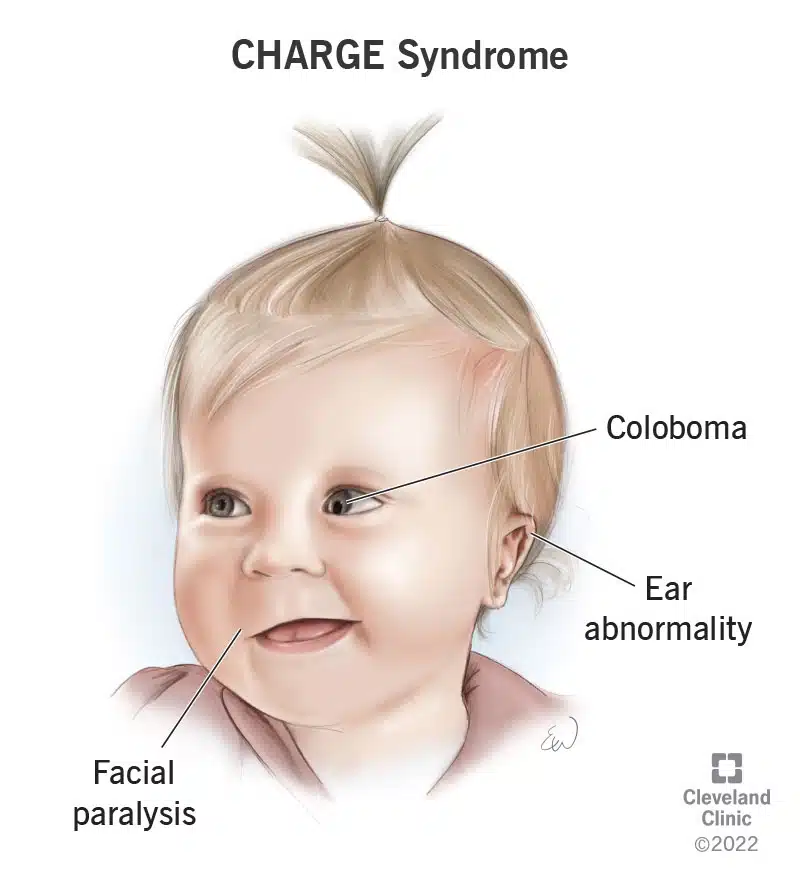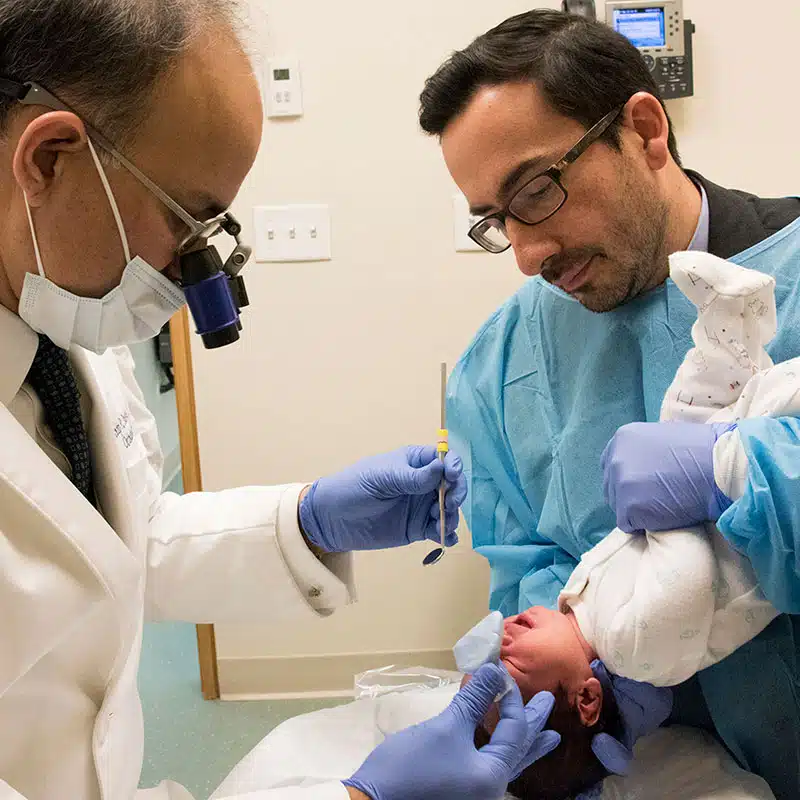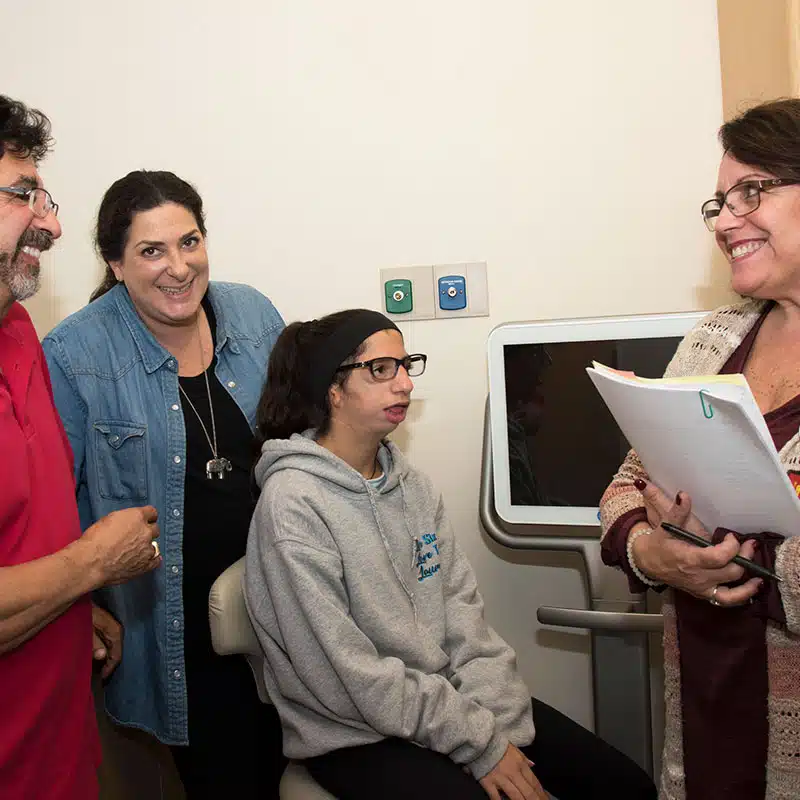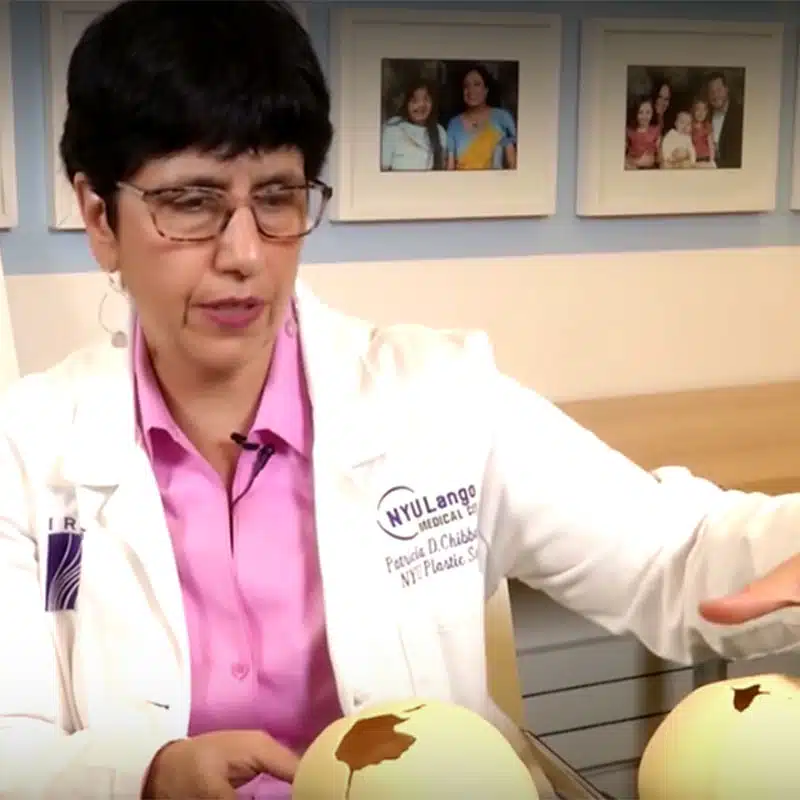CHARGE Syndrome/Association
Condiciones craneofaciales > CHARGE Syndrome/Association
What is CHARGE Syndrome?
CHARGE Syndrome is a rare and complex genetic disorder that affects multiple organ systems, leading to a range of health challenges. The acronym “CHARGE” stands for:
- Coloboma of the eye: A hole in one of the structures of the eye, often affecting vision.
- Heart defects: Congenital heart issues, including abnormal connections between heart chambers or blood vessels.
- Atresia of the choanae: A blockage of the nasal passages, making breathing difficult.
- receptoretardation of growth and development: Delayed physical and cognitive development.
- Genital and urinary anomalies: Abnormalities in the reproductive and urinary organs.
- Ear anomalies: Malformations of the outer, middle, or inner ear, often leading to hearing loss.
A confirmed diagnosis of CHARGE Syndrome typically requires the presence of at least four of these key features.
CHARGE Syndrome/Association
Visión general: CHARGE Syndrome is a rare genetic disorder characterized by a set of congenital anomalies affecting multiple organ systems, including the eyes, heart, ears, and more.
Prevalencia: CHARGE Syndrome occurs in approximately 1 in every 10,000 births.
Causas: Caused primarily by mutations in the CHD7 gene.
Diagnóstico: Diagnosis typically involves clinical evaluation and genetic testing to confirm CHD7 mutations.
Common Characteristics: Coloboma of the eye, heart defects, growth retardation, genital and urinary anomalies, and ear abnormalities.

Additional Characteristics of CHARGE Syndrome
In addition to the core features, individuals with CHARGE Syndrome may exhibit a variety of other physical and developmental characteristics:
- Facial Features: Characteristic facial appearance, including a broad forehead, flat midface, and sometimes a prominent nasal bridge.
- Cleft Lip/Palate: Some children with CHARGE have cleft lip and/or palate, which can affect feeding and speech development.
- Facial Palsy: Paralysis of facial muscles on one or both sides, impacting facial expressions and sometimes feeding.
- Tracheoesophageal Fistula: An abnormal connection between the trachea and esophagus, which can lead to breathing and feeding difficulties.
- Renal Malformations: Abnormal kidney development, which can affect kidney function.
The wide range of symptoms and their severity can vary greatly among individuals, making each case of CHARGE Syndrome unique.
Causes of CHARGE Syndrome
The majority of CHARGE Syndrome cases are caused by mutations in the CHD7 gene, which plays a crucial role in early embryonic development. These mutations typically occur sporadically, meaning they are not inherited from parents but rather arise as new mutations in the affected individual. Genetic testing can confirm the presence of CHD7 mutations, aiding in the diagnosis of CHARGE Syndrome.
Diagnosis and Management
Diagnosing CHARGE Syndrome involves a comprehensive evaluation, including physical examination, imaging studies, and genetic testing. Due to the complex nature of the syndrome, a multidisciplinary team of specialists is often required to address the various medical, developmental, and educational needs of the individual.
- Medical Management: Treatment may involve surgeries to correct heart defects, choanal atresia, or other physical anomalies. Ongoing medical care is essential to manage hearing loss, vision problems, and other health issues.
- Developmental Support: Early intervention with physical therapy, occupational therapy, speech therapy, and special education services can significantly improve outcomes for children with CHARGE Syndrome.
- Family Support: Counseling and support groups are invaluable resources for families navigating the challenges of CHARGE Syndrome. Connecting with other families through organizations can provide emotional support and practical advice.
Conoce más sobre las opciones de grupos de apoyo de myFace
Treatment for CHARGE Syndrome
Treatment for CHARGE Syndrome involves a multifaceted approach tailored to address the specific symptoms and challenges each individual faces. It typically includes medical and surgical interventions to correct congenital defects, such as heart issues or choanal atresia. Ongoing care from specialists like cardiologists and ophthalmologists is crucial for monitoring and managing health concerns. Developmental therapies, including physical, occupational, and speech therapy, support motor and cognitive development. Additionally, educational support through individualized programs and family counseling provides essential resources and emotional guidance for both the individual and their family.
Living with CHARGE Syndrome
While CHARGE Syndrome presents significant challenges, many individuals with the condition lead fulfilling lives with the right support and interventions. Early diagnosis and a proactive approach to medical care, education, and social integration are key to optimizing quality of life.
Durante casi 70 años, myFace ha trabajado con pacientes y familias para brindar atención y apoyo integrales. Además de brindar acceso a atención médica de vanguardia, myFace brinda otros servicios importantes, como grupos de apoyo emocional, talleres y seminarios web educativos que ofrecen orientación, asesoramiento y recursos para pacientes, familias y la comunidad craneofacial en general en todo el país.







